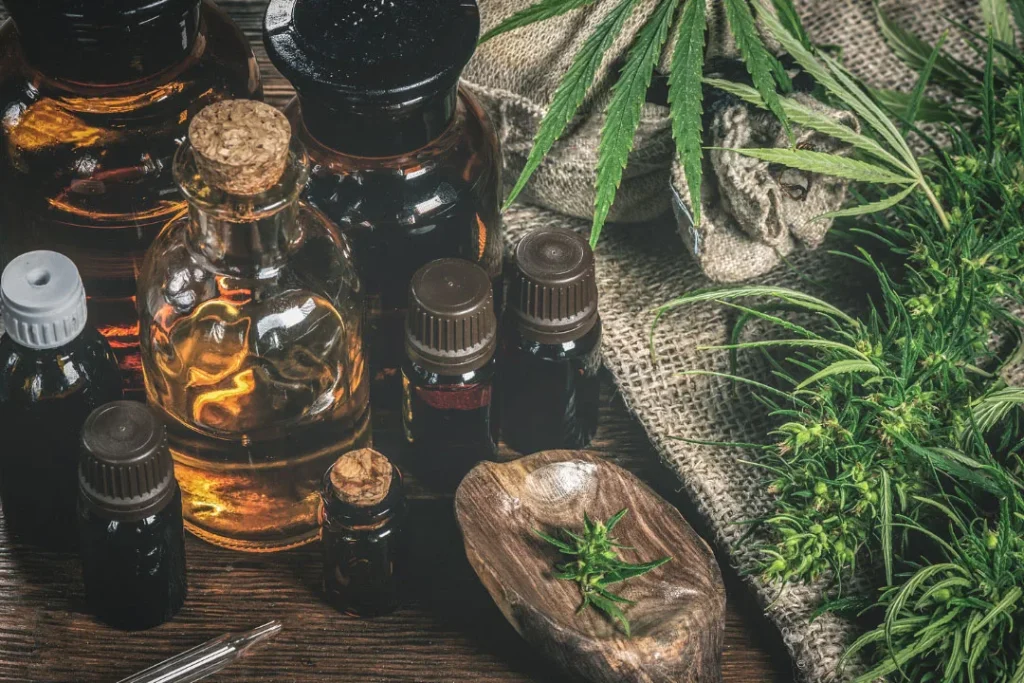In the realm of traditional medicine, there are many plant species that have been used to promote health and treat various ailments. One such plant, Forsythia suspensa, often simply referred to as Forsythia, holds an esteemed place particularly in traditional Chinese medicine. This deciduous shrub, native to Asia, is not only admired for its brilliant yellow blooms, but also for its potent medicinal properties, attributed largely to its fruit. In this comprehensive review, we delve into the nature, health benefits, dosage, side effects, and potential substance interactions of Forsythia, guided by a careful examination of the available scientific literature.
You May Also Like:
Finding the Best Supplements for Brain Fog After COVID: 5 Top Brands Reviewed
Forsythia: Benefits, Dosage, Side Effects, Drug Interactions, and Other Important Information is an original (NootropicsPlanet) article.
Nature of Forsythia
Forsythia suspensa, belonging to the Oleaceae family, is a hardy perennial that blooms in the early spring. This flowering plant, which reaches heights of 2 to 4 meters, is adorned with bell-shaped, bright yellow flowers. However, the primary medicinal component of this plant is its fruit, often referred to as ‘Forsythiae Fructus’ in scientific literature.
The chemistry of Forsythia suspensa fruit is complex, and it contains numerous biologically active compounds. Among these, the primary phytochemicals include phenylethanoid glycosides, lignans, and flavonoids. In particular, phillyrin (forsythin) and forsythoside A have attracted significant scientific attention for their potent bioactivities.
Health Benefits of Forsythia
The health benefits of Forsythia suspensa are broad, based largely on its potent anti-inflammatory, antibacterial, and antiviral properties.
- Anti-Inflammatory Properties: A substantial body of evidence suggests that Forsythia suspensa possesses notable anti-inflammatory activities. Phillyrin and forsythoside A, prominent compounds in Forsythia, have been found to suppress the production of pro-inflammatory cytokines, thereby mitigating inflammation. This property can have far-reaching implications for a variety of inflammation-driven conditions, from autoimmune diseases to heart disease.
- Antibacterial and Antiviral Properties: Forsythia suspensa has demonstrated strong antibacterial and antiviral activities, contributing to its use in treating infections. For instance, forsythoside A has exhibited inhibitory effects on Staphylococcus aureus, a common pathogen responsible for a wide range of infections. Furthermore, phillyrin has shown promise in inhibiting influenza A virus replication.
- Antioxidant Effects: Antioxidants are vital for combatting oxidative stress, a key contributor to aging and chronic diseases. Forsythia suspensa, rich in phenolic compounds like flavonoids, exhibits strong antioxidant activities. By neutralizing harmful free radicals, Forsythia may help protect against various chronic diseases and promote overall health.

Chemistry of Forsythia
There are a variety of bioactive substances are present in Forsythia’s chemistry, which may explain some of its possible health advantages. One of the main bioactive components of Forsythia is forsythiaside, a phenylethanoid glycoside.
Another key ingredient in Forsythia, phillyrin, has been investigated for its hepatoprotective properties, suggesting that it may aid in liver damage prevention. Phillyrin has also demonstrated potential anti-inflammatory and antioxidant properties.
Physiological Mechanism of Action of Forsythia
Forsythia’s physiological activities involve numerous mechanisms that affect how the body reacts to oxidative stress, infection, and inflammation. Forsythiaside and phillyrin, two of the bioactive substances found in Forsythia, are responsible for some of its therapeutic benefits.
The anti-inflammatory actions of Forsythia are mediated via the suppression of chemicals that cause inflammation, such as prostaglandins and cytokines. Forsythia may lessen pain, edema, and tissue damage brought on by inflammatory diseases by modifying the inflammatory response.
Additionally, Forsythia’s antimicrobial action is linked to its capacity to obstruct bacterial and viral development and reproduction. By blocking pathogen adherence and invasion, the bioactive components in Forsythia can stop infections from starting.

Optimal Dosage of Forsythia
Despite the myriad of purported potential health benefits, the optimal dosage of Forsythia suspensa as a supplement is yet to be precisely defined. Dosages commonly used in traditional medicine and some clinical trials range from 6 to 15 grams daily, usually administered in divided doses.
However, factors such as individual health, age, and other conditions might significantly influence the appropriate dosage. As such, it is advisable to consult a healthcare provider before starting any new supplement regimen.
Side Effects of Forsythia
Although Forsythia is generally considered safe, it may cause side effects in some individuals. These can include nausea, diarrhea, and an upset stomach.
Rarely, Forsythia can cause allergic reactions, characterized by rash, itching, severe dizziness, and trouble breathing. It’s crucial to discontinue use and seek immediate medical attention if these symptoms occur.

Potential Substance Interactions with Forsythia
Considering the potent bioactivities of Forsythia, potential interactions with other substances are a valid concern.
Forsythia may potentiate the effects of anti-inflammatory and anticoagulant drugs due to its inherent anti-inflammatory properties. Additionally, due to its potential influence on the immune system, Forsythia might interact with immunosuppressive drugs. As always, a discussion with a healthcare provider is crucial before combining Forsythia with other medications or supplements.
Best Responsible Use of Forsythia
Forsythia suspensa, a traditionally esteemed medicinal plant, offers a wealth of potential health benefits, underpinned by its rich phytochemical profile. However, much remains to be explored about its optimal dosage, long-term safety, and potential interactions. Therefore, a cautious and informed approach, in consultation with healthcare professionals, is paramount for the best and responsible use of this promising supplement.
Forsythia:
Conclusion
Forsythia offers a vibrant burst of color to landscapes with its beautiful yellow flowers, enhancing the overall aesthetic appeal. On top of that, forsythia possesses some medicinal properties and are used in traditional herbal remedies to alleviate symptoms of common colds and respiratory ailments, giving it both aesthetic appeal and medical utility.
The best part is that forsythia is relatively easy to grow and maintain, making it an excellent choice for gardeners seeking a low-maintenance yet visually striking and useufl plant.
Always remember, before consuming any supplement, it is recommended that you talk to your doctor beforehand.

References:
- Weeping Forsythia. Retrieved from: https://www.sciencedirect.com/topics/pharmacology-toxicology-and-pharmaceutical-science/forsythia-suspensa
- Forsythia suspensa. Retrieved from: https://www.sciencedirect.com/topics/pharmacology-toxicology-and-pharmaceutical-science/forsythia-suspensa
Important Note: The information contained in this article is for general informational purposes only, and should not be construed as health or medical advice, nor is it intended to diagnose, prevent, treat, or cure any disease or health condition. Before embarking on any diet, fitness regimen, or program of nutritional supplementation, it is advisable to consult your healthcare professional in order to determine its safety and probable efficacy in terms of your individual state of health.
Regarding Nutritional Supplements Or Other Non-Prescription Health Products: If any nutritional supplements or other non-prescription health products are mentioned in the foregoing article, any claims or statements made about them have not been evaluated by the U.S. Food and Drug Administration, and such nutritional supplements or other health products are not intended to diagnose, treat, cure, or prevent any disease.


